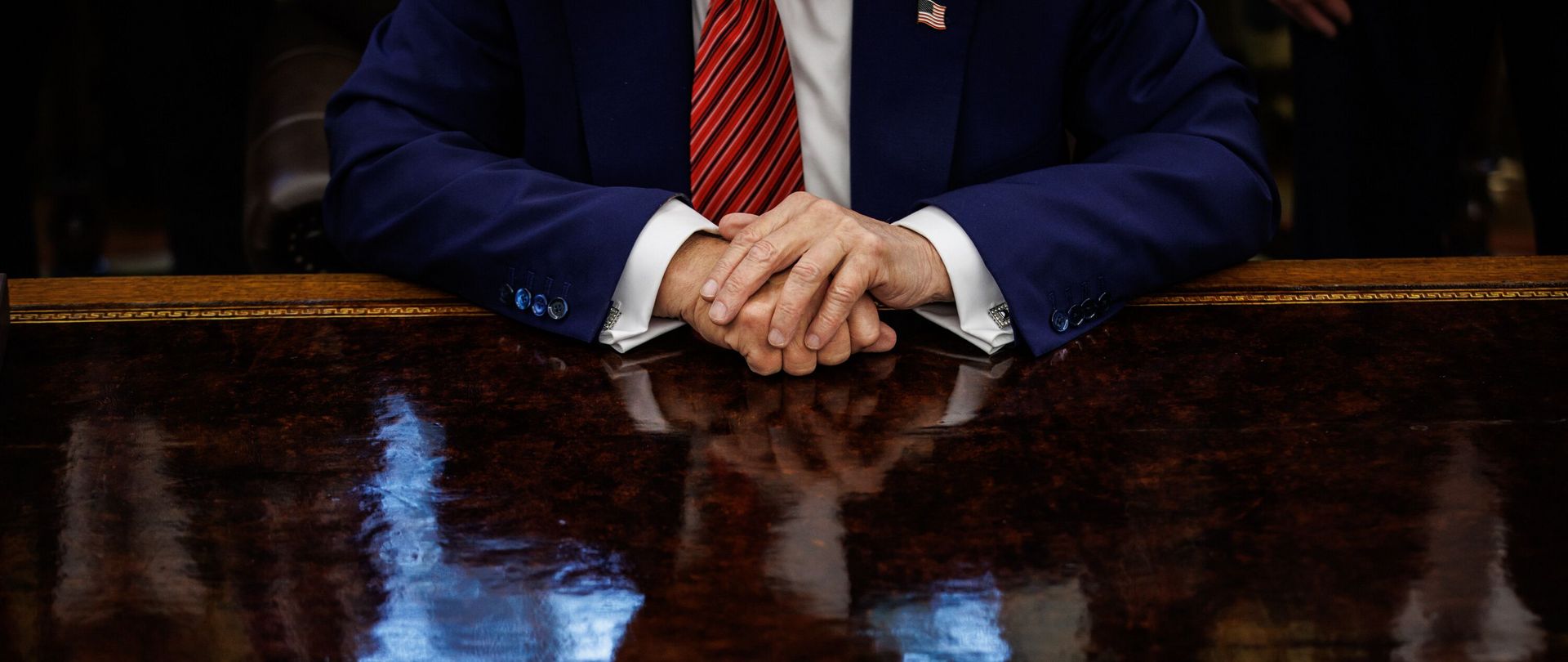
US President Donald Trump at his desk in the Oval Office
© picture alliance / Consolidated News Photos | Samuel Corum - Pool via CNP
The United States and Transatlantic Relations
With the 2024 presidential and congressional elections, voters gave Donald J. Trump and the Republican Party a clear mandate for a change of course in US politics. In addition to the presidency, both chambers of Congress are now firmly in the grip of the Make America Great Again (MAGA) movement. The Trump administration came into office with a comprehensively prepared government agenda and staffed government positions accordingly. The administration’s domestic priorities include tax cuts, the dismantling of the administrative state, and migration policy. In order to implement these policies, Trump has invoked a far-reaching interpretation of executive powers and disregarded fundamental constitutional principles such as the rule of law and the separation of powers. Regarding foreign policy, the Trump administration is performing a U-turn in how it conducts its international leadership role across policy areas. In contrast to Trump’s first term in office, the change has moved beyond rhetoric, with massive negative consequences for the stability of the international order. Fundamental principles of international law, such as territorial integrity and sovereignty, are being called into question in favour of a transactional great power policy. The resulting uncertainty and unpredictability are undermining military alliances in Europe and Asia, while an erratic and sometimes arbitrary tariff policy puts pressure on the international trade and financial system. The traditional partnership between the United States and Europe is also at risk, more so than at any time since the Second World War.
This dossier brings together SWP analyses and contributions by SWP staff on US policy and transatlantic relations. It is divided into the thematic areas of foreign and security policy, domestic policy and society, and economy and trade.
Publications
-
Multipolaritäten – Die Ordnungsvorstellungen der anderen
SWP-Studie 2026/S 07, 05.03.2026, 50 Pagesdoi:10.18449/2026S07
-
Iran vor dem Regimewechsel?
Nach den Luftangriffen Israels und der Vereinigen Staaten hat US-Präsident Trump die Bevölkerung aufgerufen, sich ihr Land zurückzuholen. Welche Folgen hat der Angriff? Gibt es erste Anzeichen eines Regimewechsels?
Interview mit Christoph Schäfer, in: Deutschlandfunk, zur Diskussion, 04.03.2026. -
«Bislang traut sich da keiner, offene Friktion zu zeigen»
Die USA haben gemeinsam mit Israel den Iran angegriffen. Als Gründe nennt US-Präsident Donald Trump unter anderem das iranische Atomprogramm, das iranische Raketenprogramm und die Grausamkeit des Regimes.
Interview mit Katrin Hiss, in: SRF, Heute Morgen, 03.03.2026. -
Politologe Overhaus zum Iran: "Kalkuliertes Risiko für Trump"
Sollte es nicht zu einem Regimewechsel im Iran kommen, könnten die USA dennoch Erfolge des Einsatzes verbuchen.
Interview mit Stefan Schlag, in: NDR Info, 02.03.2026. -
US Defence Policy: Between Isolationism and the Pursuit of Dominance
Contradictions in Washington Demand a Clear Response from Europe
SWP Comment 2026/C 10, 26.02.2026, 7 Pagesdoi:10.18449/2026C10
-
„Er hat sich gemäßigt gezeigt, aber das wird nicht so bleiben“
Donald Trump nutzte die längste Rede zur Lage der Nation für Wahlkampfzwecke. Wirtschaftsdaten wurden teils falsch dargestellt, zentrale Wählergruppen gezielt angesprochen.
Interview mit Katja Losch, in: WELT TV, Die Welt am Mittag, 25.02.2026.